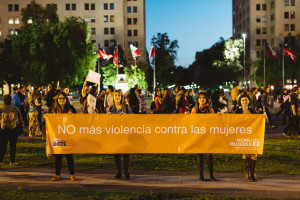Today we would like to showcase the work of Maxwell student Carol Marina Tojeiro. Carol wrote a piece on gender inequality in the labor force in Argentina that was recently published in the Cornell Policy Review. The article discusses the significance of this issue in terms of Argentina’s economic growth and offers policy recommendations. Carol is a dual MA in Economics and International Relations candidate who will graduate this spring. Her experience at IOM in Ghana was previously featured on this blog.
The Key to Unlocking Argentina’s Economic Potential? Women’s Inclusion in the Labor Force
Excerpt:
Female participation in the Argentinian workforce is limited, as men comprise 75% of labor force participation, compared to just 41% of women, according to a 2016 study. While women represent a majority of Argentina’s highly educated population, various influences such as religion and traditional expectations of women and men, as well as limited options for childcare have pushed women out of the workforce to the detriment of the Argentine economy. To improve women’s access to employment and increase workforce productivity, the Argentine government must design and adopt inclusive gender-sensitive public policies, address social unrest, and measure the impact of such policies in addressing gender equality.



